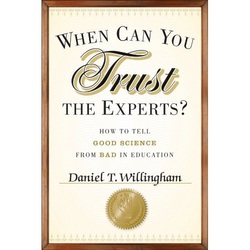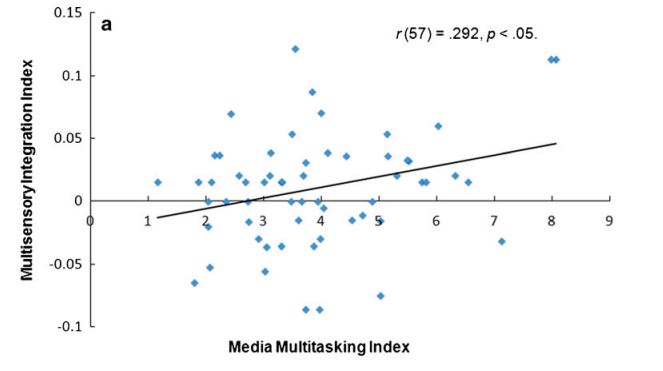Unfortunately, the author, Andrew Hacker, poses the question in earnest, and draws the conclusion that algebra should not be required of all students.
His arguments:
- A lot of students find math really hard, and that prompts them to give up on school altogether. Think of what these otherwise terrific students might have achieved if math hadn't chased them away from school.
- The math that's taught in school doesn't relate well to the mathematical reasoning people need outside of school.
His proposed solution is the teaching of quantitative skills that students can use, rather than a bunch of abstract formulas, and a better understanding of "where numbers actually come from and what they actually convey," e.g., how the consumer price index is calculated.
For most careers, Hacker believes that specialized training in the math necessary for that particular job will do the trick.
What's wrong with this vision?
The inability to cope with math is not the main reason that students drop out of high school. Yes, a low grade in math predicts dropping out, but no more so than a low grade in English. Furthermore, behavioral factors like motivation, self-regulation, social control (Casillas, Robbins, Allen & Kuo, 2012), as well as a feeling of connectedness and engagement at school (Archambault et al, 2009) are as important as GPA to dropout. So it's misleading to depict math as the chief villain in America's high dropout rate.
What of the other argument, that formal math mostly doesn't apply outside of the classroom anyway?
The difficulty students have in applying math to everyday problems they encounter is not particular to math. Transfer is hard. New learning tends to cling to the examples used to explain the concept. That's as true of literary forms, scientific method, and techniques of historical analysis as it is of mathematical formulas.
The problem is that if you try to meet this challenge by teaching the specific skills that people need, you had better be confident that you're going to cover all those skills. Because if you teach students the significance of the Consumer Price Index they are not going to know how to teach themselves the significance of projected inflation rates on their investment in CDs. Their practical knowledge will be specific to what you teach them, and won't transfer.
The best bet for knowledge that can apply to new situations is an abstract understanding--seeing that apparently different problems have a similar underlying structure. And the best bet for students to gain this abstract understanding is to teach it explicitly. (For a discussion of this point as it applies to math education in particular, see Anderson, Reder, & Simon, 1996).
But the explicit teaching of abstractions is not enough. You also need practice in putting the abstractions into concrete situations.
Hacker overlooks the need for practice, even for the everyday math he wants students to know. One of the important side benefits of higher math is that it makes you proficient at the other math that you had learned earlier, because those topics are embedded in the new stuff. (e.g., Bahrick & Hall, 1991).
So I think there are excellent reasons to doubt that Hacker's solution to the transfer problem will work out as he expects.
What of the contention that math doesn't do most people much good anyway?
Economic data directly contradict that suggestion. Economists have shown that cognitive skills--especially math and science--are robust predictors of individual income, of a country's economic growth, and of the distribution of income within a country (e.g. Hanushek & Kimko, 2000; Hanushek & Woessmann, 2008).
Why would cognitive skills (as measured by international benchmark tests) be a predictor of economic growth? Economic productivity does not spring solely from the creativity of engineers and inventors. The well-educated worker is more likely to (1) see the potential for applying an innovation in a new context; (2) understand the explanation for applying an innovation that someone else has spotted.
In other words, Hacker overlooks the possibility that the mathematics learned in school, even if seldom applied directly, makes students better able to learn new quantitative skills. The on-the-job training in mathematics that Hacker envisions will go a whole lot better with an employee who gained a solid footing in math in school.
Finally, there is the question of income distribution; countries with a better educated populace show smaller income disparity, and suggesting that not everyone needs to math raises the question of who will learn it. Who will learn higher math in Hacker's ideal world? He's not clear on this point. He says he's against tracking, but notes that MIT and Cal Tech clearly need their students to be proficient in math. Does this mean that everyone gets the same vocational-type math education, and some of those going on to college will get access to higher math?
If that were actually implemented, how long before private vendors offer after school courses in formal mathematics, to give kids an edge for entrance to MIT? Private courses that cost, and to which the poor will not have access.
There are not many people who are satisfied with the mathematical competence of the average US student. We need to do better. Promising ideas include devoting more time to mathematics in early grades, more exposure to premathematical concepts in preschool, and perhaps specialized math instructors beginning in earlier grades.
Hacker's suggestions sound like surrender.
Anderson, J. R., Reder, L. M., & Simon, H. A. (1996). Situated learning and education. Educational Researcher, 25, 5-11
Archambault, I., Janosz, M, Fallu, J.-S., & Pagani, L. S. (2009). Student engagement and its relationship with early high school dropout. Journal of Adolescence, 32, 651-670.
Bahrick, H. P. & Hall, L. K. (1991). Lifetime maintenance of high school mathematics content. Journal of Experimental Psychology: General, 120, 20-33.
Hanushek, E. A. & Kimko D. D. (2000). Schooling, labor-force quality, and the growth of nations. The American Economic Review, 90, 1184-1208.
Hanushek, E. A. & Woessmann, (2008). The role of cognitive skills in economic development. Journal of Economic Literature. 46, 607-668.





 RSS Feed
RSS Feed